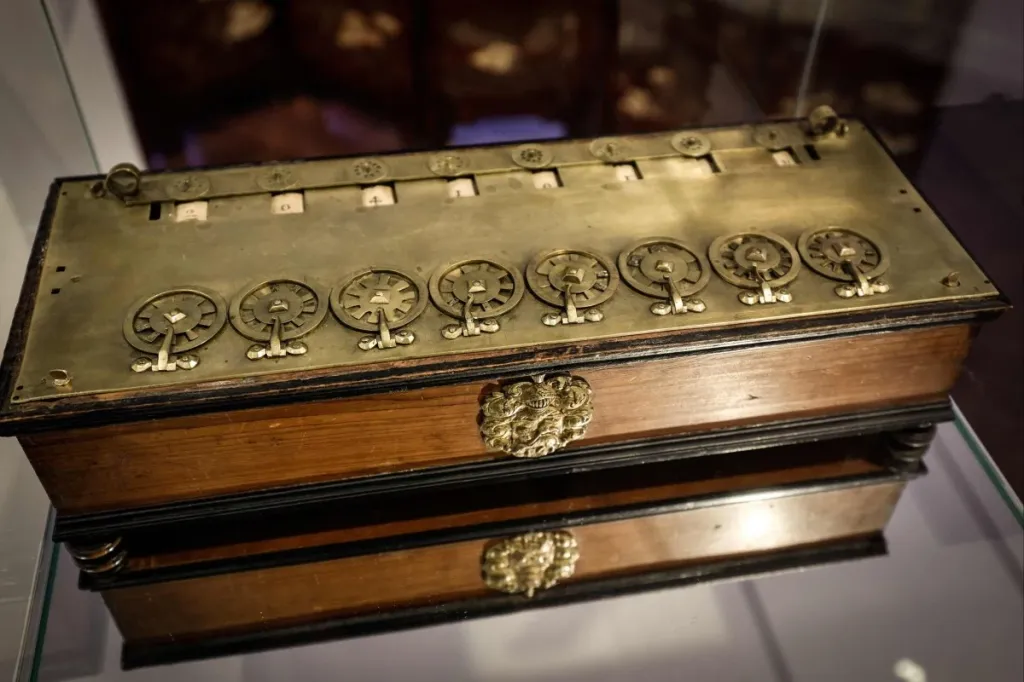Christie’s suspended its sale of the first calculating machine after an export ban kept it from leaving France, according to the South China Morning Post.
One of only nine surviving examples of a calculator built by 17th-century French mathematician and inventor Blaise Pascal, the instrument was to be auctioned this afternoon. But French scientists and researchers argued that it was a national treasure, prompting the court-ordered export ban. An export certificate had been issued in May for the lot; the new ban would have prevented any purchaser from taking it out of France.
The sale, part of an auction of the holdings of late book and manuscript collector Léon Parcé (1894–1979), was suspended at the request of the present owner until a final decision is made regarding the object’s classification. It was expected to bring between $2.3 million and $3.5 million.
The calculator is made of brass and wood with ebony embellishments. It is thought to be the sole example of Pascal’s invention still privately owned—seven of the others are in museum collections, one is owned by IBM.
Pascal was 19 when he invented the device in 1642 to help his father, then chief of Normandy’s Board of Excise, reorganize the province’s tax revenues. He would later build approximately 20 finished calculators, also known as Pascalines, before moving on to other interests.
Pascal designed three versions of his calculating machines: one for adding, subtracting, multiplying and dividing; one for accounting; and one for calculating distances. This particular instrument is the only extant example of this last model.
In its description of the lot, Christie’s wrote, “The Pascaline is much more than a simple mechanical object: it is the first attempt in history to substitute the human mind with a machine.”
A final decision on the calculator’s status as a national treasure is expected to take several months.

